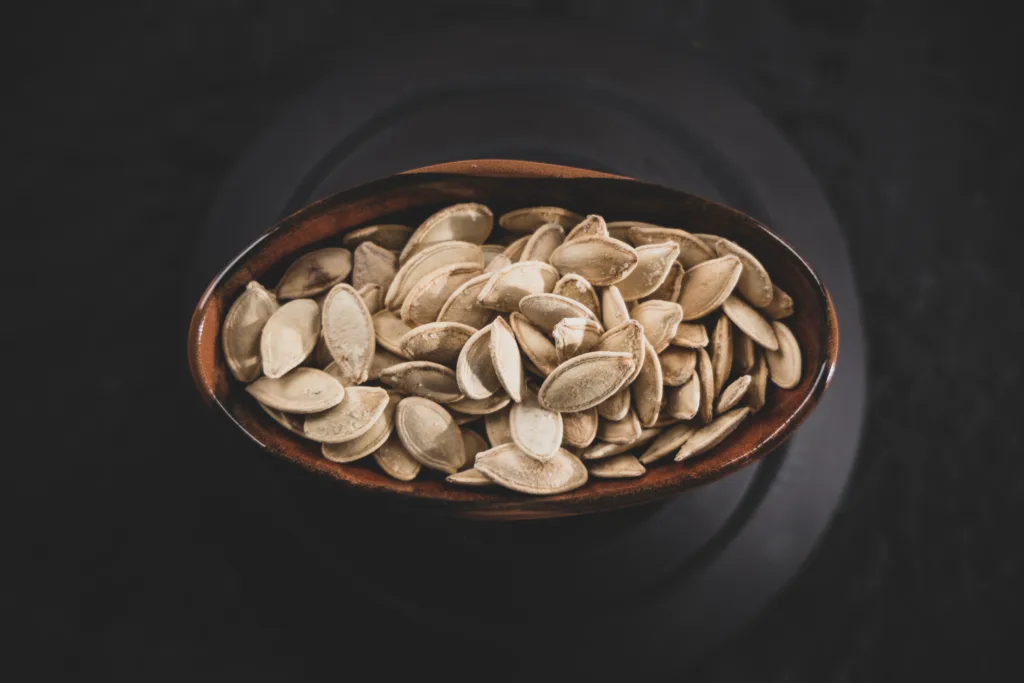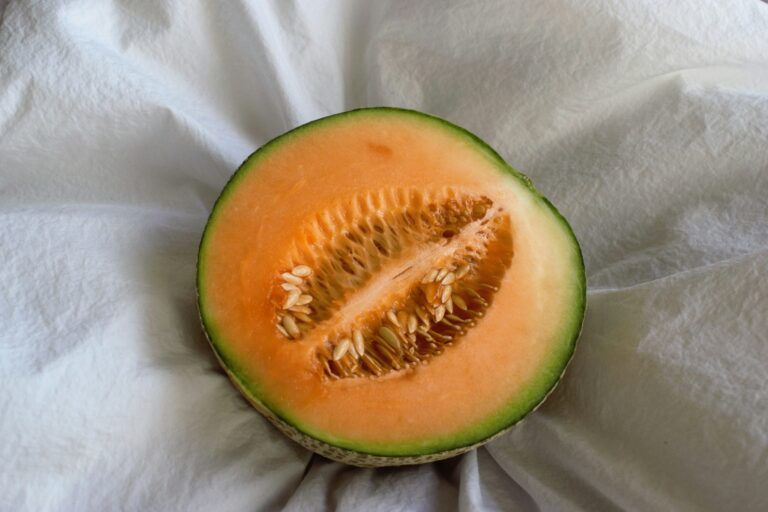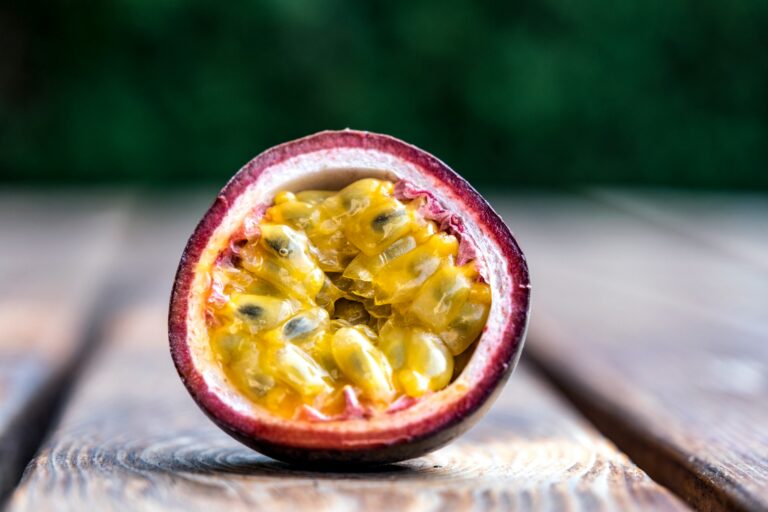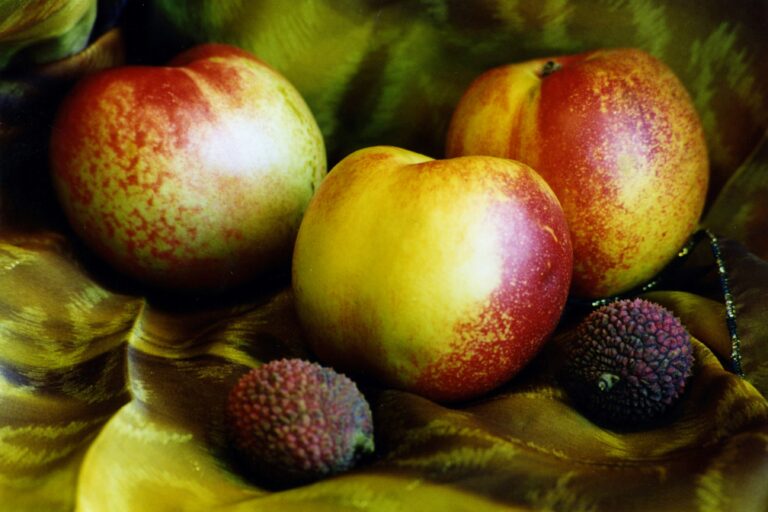Scientifically pumpkin seed is known as Cucurbita maxima. Pumpkin seeds have been found in Mexico and date back as far as 7000 B.C. In South America, they were widely enjoyed by Aztec cultures dating as far back as 1300 _1500 AD. They are referred to as “pepitas”.Pumpkin seeds were given to sick people as a means to expel parasitic worms and intestinal parasites from the body. They are the seeds that grow inside the pumpkin. Uncut pumpkins can be stored for up to three months in a dry cool place.
Color: Seeds are green surrounded by a yellowish-white shell.
Shape: The seeds are flat and asymmetrically oval, have a white outer husk, and are light green after the husk is removed.
Size: Pumpkin seeds are (8.8 to 23.3 mm) in length, (5.0 to 12.5 mm)in width, and(1.2 to 3.8 mm) in thickness.
Flavor: Raw pumpkin seeds have mild flavor and chewy texture. They are more fibrous and less sweet than cooked varieties.
Nutrients
Pumpkin seeds are packed with nutrients that offer various health benefits. Here are the key nutrition facts for 100 grams of pumpkin seeds:
- Calories 446
- Protein 19 g
- Dietary fiber 18 g
- Saturated fat 3.7 g
- Carbohydrate 54 g
- Sodium 18 mg
- Potassium 919 mg
| How to grow Pumpkin seeds? |
First, Search for a favorable area and then sow two or three seeds, into each prepared site, 3 cm(1 in)deep. Cover with a cloche or plastic sheeting, and leave in place for two weeks or more germination. Water the seedlings regularly and protect them from slugs and snails, especially in damp conditions. Pumpkins take 90 _ 120 days to mature after seeds are planted. Pumpkins are ripe when they are fully colored and have a hard rind and woody stem. Carefully cut off the stem with a knife, leaving several inches of stem on the pumpkin.
Healthy Benefits of Pumpkin Seeds
It is important to note that pumpkin seeds offer various benefits to your health but you must consult a healthcare professional to add it to your diet.
Full of valuable nutrients
Pumpkin seeds contain several minerals like sodium, potassium, calcium, magnesium, and many others which are essential for the body and have many vitamins in them.
High in antioxidants
They are rich in antioxidants such as flavonoids and phenolic acid. Antioxidants reduce inflammation and protect your cells from harmful free radicals. In this way, they are very beneficial for the human body.
Very high in Magnesium
Pumpkin seeds are one of the best natural sources of magnesium. It is needed for more than 600 chemical reactions in our body. So pumpkin seeds assures the presence of this nutrient in our body.
Lower blood sugar levels
Pumpkin, pumpkin seeds powder, and pumpkin juice help in reducing blood sugar levels. High magnesium in it is responsible for positive effects on diabetes.
High in fiber
They are rich source of fiber which have been associated with a reduced risk of Heart attack. A diet high in fiber can promote good digestive health.
Hair loss and Diet
Seeds are used in the diet for weight loss and the oil of pumpkin seeds is used for hair fall.
Improve Heart Health
Pumpkin seeds are a good source of antioxidants, magnesium, zinc, and unsaturated fats all of which may help to keep the heart healthy. Scientific studies of animals and humans also show that pumpkin seed oil may also reduce blood pressure and cholesterol levels, which are the basic factors of heart disease.
Prevention of Kidney Stone
Pumpkin seeds have been known to have a positive impact on circulation as well as kidney and liver function. It prevents the accumulation of uric acid in the body.
Side effects of Pumpkin Seed
Despite some advantages pumpkin seeds also have harmful effects which are due to excessive use of it follow as:
Digestive issues
They cause abdominal pain if consumed in large quantities. Due to the high amount of fiber eating too much can also cause gas and bloating in the stomach.
Allergy
Some people are allergic to these seeds because they contain certain allergic reactions such as throat irritation, coughing, and headache. So it badly harms those who are irritant by it.
Weight gain
Pumpkin seeds are jam-packed in calories so if they are eaten in excess, these can make you pile on extra kilos.
Low blood pressure patients
These seeds are alarming for patients suffering from low blood pressure because they are antioxidant in nature so they keep lowering the blood pressure of these patients already suffering from it.
Cannot given to infants
Due to the high amount of fiber and fats in seeds, it triggers stomach cramps and even diarrhea in infants. Any excessive use of it must be harmful to the health of infants and others and using it in a limited amount will be very progressive for you.
FAQ
What is the benefit of pumpkin seeds?
Pumpkin seeds offer various benefits to your health they contain several minerals like sodium, potassium, calcium, magnesium, and many others which are essential for the body, and promote heart health and blood sugar levels.
How pumpkin seeds are eaten?
Pumpkin seeds can be eaten raw but taste especially delicious when you roast them. They can be added to smoothies and salads to give them more crunch.
Is it OK to eat pumpkin seeds every day?
To maintain a healthy diet, the American Heart Association recommends eating 30 grams (or about a quarter cup) of pumpkin seeds per day.






